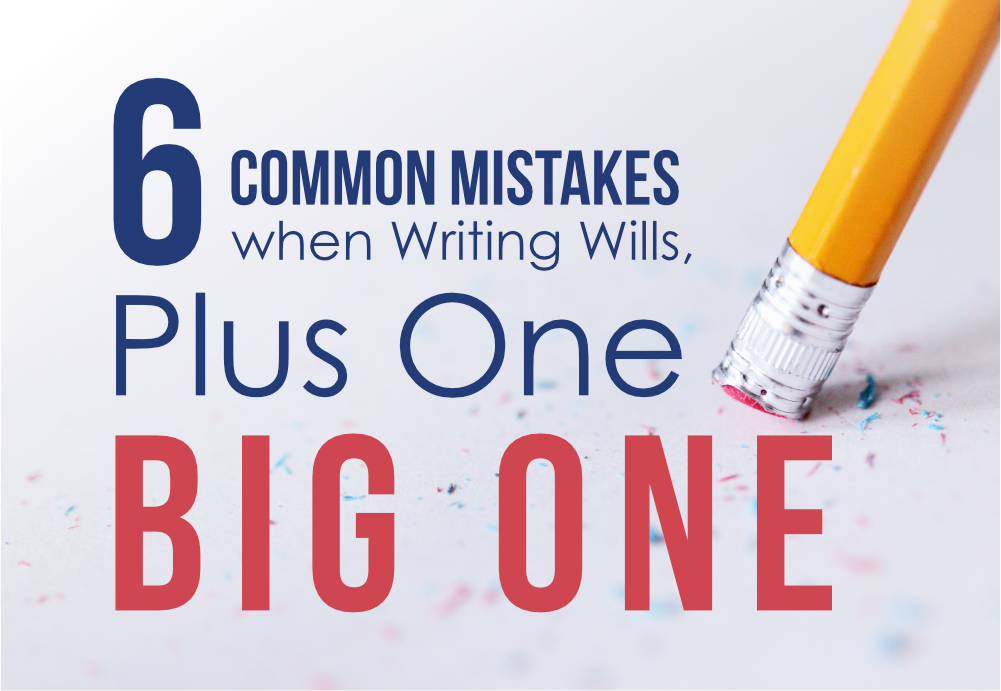Writing a will is not rocket science, but many people argue that a will is the most important document in your life. However, even if you have written a will, your loved ones might be in for a shock if you have inadvertently made a mistake in your will.
Unfortunately, mistakes are typically only discovered after you have died. This means that your loved ones will have to sort out any mess that a mistake creates. Here are some of the common mistakes that arise in wills:
- Not keeping the original copy of your will safe — When you die, your executors will need your original will to legally administer your estate – not just a photocopy. Without the original, it will be difficult for your executor to obtain a grant of probate to manage your affairs.
- You find that your will is out of date because of a life-changing event — You may have not updated a new birth in your family or one of your loved ones getting divorced or dying before you. Or perhaps you have not included your new apartment in your will. Such omissions could lead to challenges to the contents of your will.
- Not dealing adequately with beneficiaries of assets that are not controlled by the will – Assets like life insurance policies, pensions and bank accounts are set up to pass directly to the named beneficiary. A person may need to take advice on how assets not controlled by a will should be treated.
- Failure to anticipate the death of beneficiaries or executor — It’s important to name alternate beneficiaries, or an alternative executor, in case any of these individuals die before you. You should also name more than one executor when you write your will.
- Forgetting assets to include in your will – People tend to forget about intangible assets such as bank accounts, bonds, shares and so on.
- Thinking it is easy to make changes to your will – It is not as simple just adding some new lines of text to your will. To make changes to an existing will you will have to make an official alteration called a codicil, or you can alternatively make a new will. A codicil must be signed and witnessed in the same way as a will.
These are just some of the mistakes that we see when people write their wills. However, we would argue that the biggest mistake is not writing a will in the first place. Because if you die, this means that you have died intestate. Intestacy is the condition of the estate of a person who dies without having made a valid will.
It follows a set of rules laid down by law which stipulate how the estate is to be administered if there is no will. In later articles in our series, we will look more deeply at the rules of intestacy. For now, it is sufficient to say that intestacy could ultimately result in assets not being distributed to your loved ones in the way you intended.
Note: In our next article, we look at how you can deal with your digital footprint in your will.










